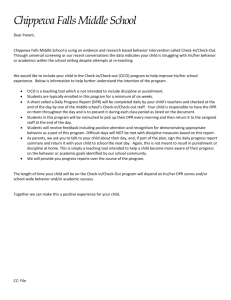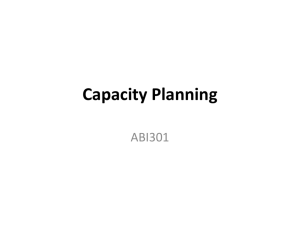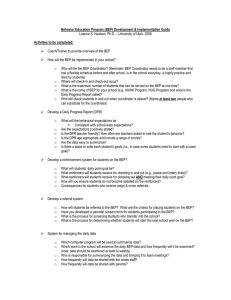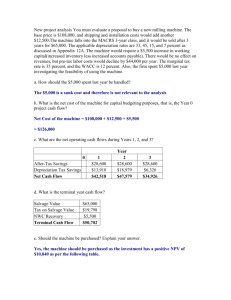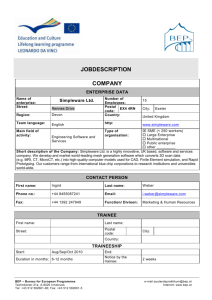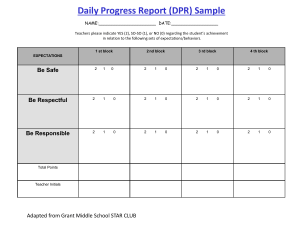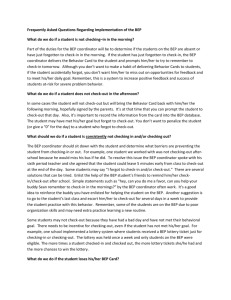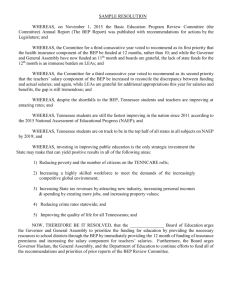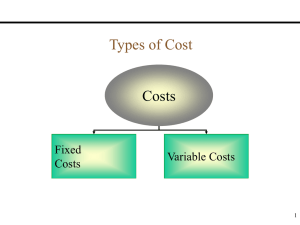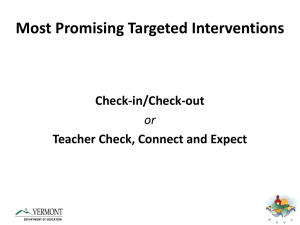BEP Calusa Park ES 2011 - Florida's Positive Behavior Support
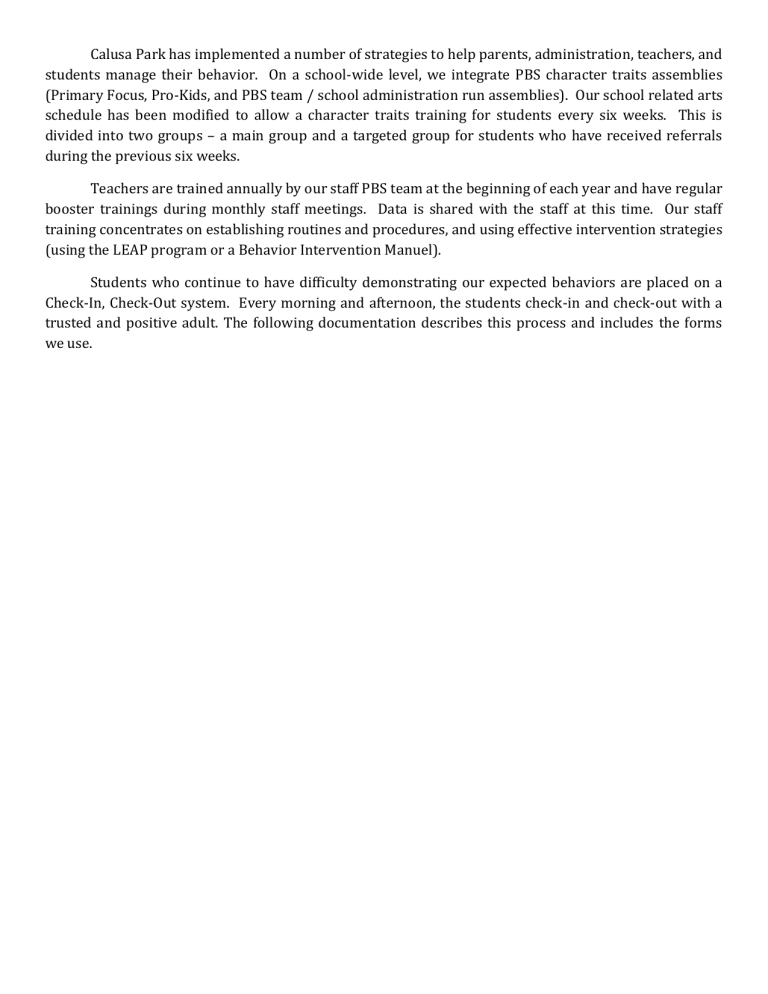
Calusa Park has implemented a number of strategies to help parents, administration, teachers, and students manage their behavior. On a school-wide level, we integrate PBS character traits assemblies
(Primary Focus, Pro-Kids, and PBS team / school administration run assemblies). Our school related arts schedule has been modified to allow a character traits training for students every six weeks. This is divided into two groups – a main group and a targeted group for students who have received referrals during the previous six weeks.
Teachers are trained annually by our staff PBS team at the beginning of each year and have regular booster trainings during monthly staff meetings. Data is shared with the staff at this time. Our staff training concentrates on establishing routines and procedures, and using effective intervention strategies
(using the LEAP program or a Behavior Intervention Manuel).
Students who continue to have difficulty demonstrating our expected behaviors are placed on a
Check-In, Check-Out system. Every morning and afternoon, the students check-in and check-out with a trusted and positive adult. The following documentation describes this process and includes the forms we use.
BEHAVIOR EDUCATION PROGRAM (BEP)
CHECK IN-CHECK OUT
A school-based program that provides daily support and monitoring for students who are at risk for developing serious or chronic problem behaviors.
The Behavior Education Program addresses the 2 nd level of behavioral need.
The BEP is a daily check in/check out system that provides a student with immediate feedback on his or her behavior and increased positive adult attention based on a Daily Progress Report (DPR).
Home School Connection- a copy of the DPR is sent home every day to be signed by parents and brought back the next school day.
The BEP is based on three “big ideas” from behavioral research: 1. At-risk students benefit from clearly defined expectations, frequent feedback, consistency, positive reinforcement that is contingent on meeting goals 2. Problem behavior and academic success are often linked and 3.
Behavioral support begins with the development of effective adult-student relationships.
A critical feature of the BEP is the use of data to evaluate its effectiveness in changing student behavior.
There is a low time demand on each teacher the student comes in contact with.
ELEMENTS OF THE BEHAVIORAL EDUCATION PROGRAM
1.
Who manages the BEP?
The BEP is managed by a BEP Coordinator and a Behavior Support Team (BST).
2.
How are students identified?
Students have to be nominated either by a teacher, family member or by students themselves.
3.
How does the BEP work on a daily basis?
Student arrives at school and checks in with an adult and receives DPR
Student carries the DPR throughout the day and hands it to the teacher at the start of the day/activity
Student receives feedback related to expected social behaviors
At the end of the day the student returns DPR to BEP coordinator, receives a reward and carries a copy of the DPR home
At home the student receives recognition for success, the DPR is signed
The signed DPR is returned the next day
On a weekly basis the BST will review the percentage points earned by each student and to adjust support options as needed
4.
Will all students nominated be accepted?
No, not all. Some students will have mildly inappropriate behaviors that can be corrected with slight modifications in their routines.
Not for students who exhibit behaviors in only one or two settings
Not for students with chronic or severe behaviors
5.
When do you determine when a student is ready to be removed from the BEP?
The BST will determine this according to the data.
Parent/Guardian of: ______________________________________________________
We would like to include your child in our Best Paw Forward Daily Check-In/Check-Out Program. This is a program designed to help students meet our School-Wide Expectations in a positive manner. Your child will be assigned a coordinator (a teacher or staff member) and will be responsible for checking in with that person each morning and checking out at the end of the day.
A report will be filled out daily by the teacher(s) stating whether or not expectations have been met. The coordinator will review the report at check-in/check-out time. You will also review and sign the daily report each night. The student will earn incentives and rewards for appropriate behavior. As parent, you are responsible for making sure your child arrives on time each day for check-in and that you review and sign the daily progress report. Together, we can make this a positive experience for your child.
We appreciate your cooperation in this program and look forward to working with you and your child. Please contact the Assistant Principal, Sharon E. Wheeler, at 377-6402 if you have any questions.
___________ I do give consent for my child to participate.
___________ I do not give consent for my child to participate.
______________________________________ ____________________
Parent/Guardian Date
NAME __________________ 2= Great Points Received _______
DATE ____________________ 1= Almost Points Possible 48
GOAL 80% 0= Try Again Daily Goal Met? Yes No
GOALS
1. Focus on lesson or task.
OPENING SPECIALS READING MATH WRITING LUNCH/
RECESS
SCIENCE/
SOCIAL
STUDIES
CLOSING
2. On task during independent or cooperative activities.
3. Respectful when speaking with others.
TEACHER INITIALS
COMMENTS: ____________________________________________________________________________________________________________
_______________________________________________________________________________________________________________________
PARENT SIGNATURE: ___________________________________
